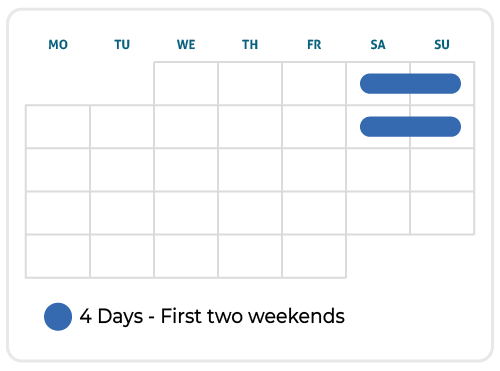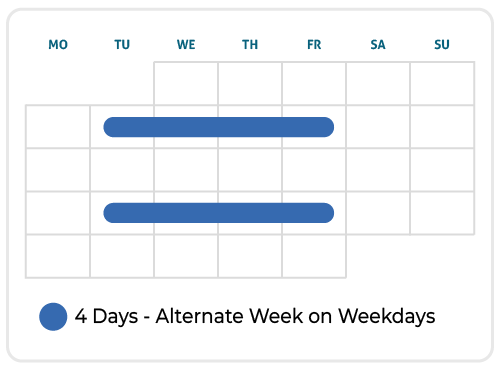Data Center Unified Computing Training Certification Course Overview Santa Ana, CA
You are the server and virtualization engineer constantly fighting the legacy stack - spending hours physically racking servers, manually updating firmware, and managing configuration drift across sprawling infrastructure in Santa Ana, CA . Meanwhile, enterprise data centers are standardizing on Cisco Unified Computing System (UCS) to achieve high-density deployments, simplified management, and rapid scalability. Without expertise in UCS and Unified Computing System management, your skills are increasingly obsolete, easily outsourced, or overlooked by recruiters seeking professionals proficient in unified fabric and stateless computing. This Cisco Unified Computing System training isn't theoretical. It's built by engineers who have executed non-disruptive UCS migrations and complex VMware integrations for major Santa Ana, CA financial institutions and service providers. You'll master Service Profiles, Fabric Interconnects, and the Nexus 1000V, transforming hours of server provisioning into minutes. With validated UCS skills, you become the go-to professional for data center automation and efficiency. Our program ensures capability that translates directly to measurable impact. You'll learn to design identity pools resilient to hardware failure, provision stateless computing for rapid server replacement, and implement role-based access control that secures critical assets. This is more than Cisco certification - it's the ability to reduce server provisioning time by 50%, earning recognition from senior leadership and controlling critical budgets. Designed for experienced data center professionals, this UCS course provides 24/7 access to high-fidelity UCS Manager simulators, guided labs, and real-world case studies from Santa Ana, CA banking and telecom sectors. By mastering Cisco Unified Computing System, Unified Computing System, and UCS, your career shifts from manual operations to strategic data center architecture, positioning you as a high-value, certified professional in enterprise IT.
Cisco UCS Certification Training Highlights Santa Ana, CA
Deep-Technical, Implementation-Focused
Move past basic concepts into the complex configuration and maintenance of Cisco UCS B-Series and C-Series components.
100+ Hours of UCS Manager Labs
Gain proficiency on a high-fidelity simulator mirroring the UCS Manager GUI and CLI - mastering the tools used by industry experts.
Taught by Data Center CCIEs
Learn the undocumented tips, common pitfalls, and architectural best practices from instructors who design and troubleshoot UCS environments daily.
Stateless Computing Mastery
Get hands-on with Service Profiles and Templates to fully automate server identity and configuration, a non-negotiable skill for modern data centers.
Unified Fabric Integration Focus
Dedicated instruction on configuring Fabric Interconnects and integrating with the Cisco Nexus 1000V for full end-to-end fabric control.
Performance-Driven Mentoring
Receive individualized feedback on your lab configurations and troubleshooting methodologies to ensure you meet enterprise-grade standards.
Corporate Training

Ready to transform your team?
Get a custom quote for your organization's training needs.
Upcoming Schedule



Skills You Will Gain In Our Cisco UCS Certification Training Program
Stateless Server Provisioning
Stop manual configuration. You will learn to create and deploy Service Profiles that automatically configure networking, storage, and firmware for any UCS hardware.
Unified Fabric Implementation
Master the configuration of Fabric Interconnects and their critical role in unifying LAN and SAN traffic using Fibre Channel over Ethernet (FCoE).
High-Availability Management
Implement redundancy for all critical components - from Fabric Interconnect clustering to storage and network path redundancy - ensuring zero unplanned downtime.
B-Series and C-Series Deployment
Gain hands-on expertise in the installation, firmware management, and initial configuration of both Blade (B-Series) and Rack-Mount (C-Series) servers.
Virtual Networking with Nexus 1000V
Understand and deploy the Cisco Nexus 1000V as the distributed virtual switch to provide centralized network policy enforcement in the VMware environment.
Firmware Lifecycle Management
Implement a rigorous, non-disruptive process for upgrading and maintaining all UCS component firmware (I/O Modules, FIs, CIMC) to prevent catastrophic failures.
Who This Program Is For
Server Administrators
Virtualization Engineers (VMware/Hyper-V)
Data Center Technicians
Storage Engineers
Network Engineers (Transitioning to Data Center)
Infrastructure Consultants
If you lead projects and meet PMI's mandatory experience requirements, this program is engineered to get you certified.
Cisco Unified Computing Systems Training Program Roadmap Santa Ana, CA
Why Get Cisco UCS Certified?
Stop managing physical infrastructure
Transition your role from a technician to an Infrastructure-as-Code engineer leveraging UCS automation.
Unlock the Data Center Track
Qualify for senior roles focusing on architecture, virtualization, and cloud infrastructure integration.
Validate Your UCS Expertise
Prove you can manage complex, converged infrastructure deployments in major enterprise environments.
Eligibility & Prerequisites
The Cisco Certified Specialist - Data Center Unified Computing Implementation credential is designed to validate hands-on, domain-specific expertise in modern UCS environments. Here is a clear breakdown of what you need to qualify.
Pass the Required Exam: You must pass the Cisco exam focused on Unified Computing Implementation (e.g., 300-425 DCSUNI or the current equivalent). The exam cost is typically $300 USD. Our training is fully aligned with this exam blueprint.
Pre-Requisite (Implied): No formal certification is mandatory, but you must have foundational knowledge of server hardware, basic Ethernet networking (VLANs, trunking), and storage concepts (SAN/NAS). This course builds on those fundamentals.
Recommended Experience: Cisco recommends 3-5 years of hands-on experience in a data center environment, or equivalent intensive training, before attempting this specialist-level exam.
Course Modules & Curriculum
Lesson 1: Configuring UCS Manager Access
Master the GUI, CLI, and initial configuration of Fabric Interconnect clustering and high-availability setup.
Lesson 2: Compute Node LAN Connectivity
Configure VLANs, vNICs, and network control policies, mastering complex traffic steering within the unified fabric.
Lesson 3: Compute Node SAN Connectivity
Implement Fibre Channel and FCoE to provision storage access, including zoning and VSAN configuration.
Lesson 1: Pool Creation & Management
Master the creation of MAC, WWN, UUID, and IP pools in UCS to ensure stateless server identity and conflict-free deployments.
Lesson 2: Service Profile Deployment
Learn to design, create, and deploy robust Service Profiles to fully automate server configurations and reduce manual setup time.
Lesson 3: Service Profile Templates & Cloning
Scale deployments by mastering Service Profile Templates, ensuring consistency and rapid rollout across hundreds of compute nodes.
Lesson 1: Evaluating Cisco Nexus 1000V
Understand the architecture, components (VSM/VEM), and role of the Nexus 1000V for consistent VMware network integration.
Lesson 2: Installing & Configuring Nexus 1000V
Hands-on lab work for installation, configuration, and integration with UCS Manager.
Lesson 3: Configuring Basic Nexus 1000V Networking
Implement port profiles, VEM configuration, and basic switching policies to control hypervisor-level traffic flow and segmentation.
Lesson 1: Implementing Role-Based Access Control (RBAC)
Configure local and remote authentication (LDAP/RADIUS), roles, and organizations to secure UCS Manager access according to enterprise standards.
Lesson 2: UCS Backup & Recovery Procedures
Master full and configuration-only backups, database restoration, and UCS domain startup/shutdown operations to ensure high availability.
Lesson 3: Managing & Upgrading UCS Firmware
Focus on non-disruptive, orchestrated firmware updates across all UCS components, minimizing production impact and aligning with best practices.





